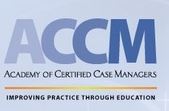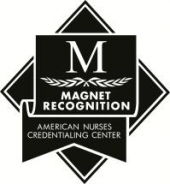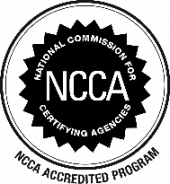Our stakeholders are organizations who can affect or be affected by the achievement of the Commissions objectives.

The National Association of Social Workers (NASW) recognizes the CCM exam as the proxy for board-certification for social workers in case management. For more information regarding this collaborative, please contact NASW at credentialing@naswdc.org or 1.800.638.8799.

The Disability Management Employer Coalition (DMEC) provides ADMS and CDMS designees pre-approved continuing education opportunities through online and in-person events, including webinars, virtual events, and conferences. A designee can apply DMEC continuing education credit that is pre-approved towards their recertification requirements.

The Population Health Alliance (PHA) provides CCMC certificants discounts on memberships. CCMC provides PHA members discounts on certification and renewals.

In early 2023, the Commission joined the National Academy of Medicine's (NAM) Action Collaborative on Clinician Well-Being and Resilience, designed to address the burnout trend by providing health workers with resources and support. On March 18, NAM’s held its first Health Workforce Well-Being Day of Awareness. The Commission has now joined this initiative, known as the NAM Change Maker Campaign for Health Workforce Well-Being. The Commission is proud to be one of the hundreds of organizations dedicated to building workforce resilience and well-being for today’s health workforce.

Workcred’s mission is to strengthen workforce quality by improving the credentialing system, ensuring its ongoing relevance, and preparing employers, workers, educators, and governments to use it effectively. The Commission actively participates in meetings and is a member of Workcreds's Credentialing Body Advisory Council.
 Post 911 GI Bill is a new education benefit program is for individuals that served on active duty after September 11, 2001. Individuals may be eligible if they have served at least 90 days on active duty. A graduated scale of benefits is payable up to the maximum of 36 months of aggregate service. Benefits are generally paid for programs of education at Colleges and Universities in the State. For more information visit the VA website at www.gibill.va.gov. Payment for the CCM exam has been approved by the U.S. Department of Veterans Affairs (VA) as reimbursable under the GI Bill for licensing and certification.
Post 911 GI Bill is a new education benefit program is for individuals that served on active duty after September 11, 2001. Individuals may be eligible if they have served at least 90 days on active duty. A graduated scale of benefits is payable up to the maximum of 36 months of aggregate service. Benefits are generally paid for programs of education at Colleges and Universities in the State. For more information visit the VA website at www.gibill.va.gov. Payment for the CCM exam has been approved by the U.S. Department of Veterans Affairs (VA) as reimbursable under the GI Bill for licensing and certification.
 ACCM enables its members to maintain their certification by making available a stream of continuing education as home study programs. New programs are published bi-monthly in the Academy's official journal CareManagement. Completion of these programs and their CEU examinations, allow ACCM members to receive Certificates of Completion that are accepted by the Commission for Case Manager Certification.
ACCM enables its members to maintain their certification by making available a stream of continuing education as home study programs. New programs are published bi-monthly in the Academy's official journal CareManagement. Completion of these programs and their CEU examinations, allow ACCM members to receive Certificates of Completion that are accepted by the Commission for Case Manager Certification.
 Produced by Health2 Resources, H2RMinutes: Accountable Care brings you targeted, timely news about advanced models of care. The Commission is pleased to be a founding sponsor of H2RMinutes: Accountable Care. H2RMinutes: Accountable Care has been tracking the great interest in ACOs since CMS released the first set of regulations for a new model of health care delivery. Since its inclusion as a test model for improving health care delivery via the Affordable Care Act, the ACO has been an area of keen interest for those interested in health care transformation.
Produced by Health2 Resources, H2RMinutes: Accountable Care brings you targeted, timely news about advanced models of care. The Commission is pleased to be a founding sponsor of H2RMinutes: Accountable Care. H2RMinutes: Accountable Care has been tracking the great interest in ACOs since CMS released the first set of regulations for a new model of health care delivery. Since its inclusion as a test model for improving health care delivery via the Affordable Care Act, the ACO has been an area of keen interest for those interested in health care transformation.
 Magnet-recognized organizations empower nurses to reach their true potential. When a healthcare organization earns Magnet status, it demonstrates to the world that it’s an organization that recognizes the invaluable potential of nurses to lead healthcare change.
Magnet-recognized organizations empower nurses to reach their true potential. When a healthcare organization earns Magnet status, it demonstrates to the world that it’s an organization that recognizes the invaluable potential of nurses to lead healthcare change.
The National Commission for Certifying Agencies (NCCA) was created in 1987 by ICE to help ensure the health, welfare, and safety of the public through the accreditation of a variety of certification programs/organizations that assess professional competence. Certification programs that receive NCCA Accreditation demonstrate compliance with the NCCA’s Standards for the Accreditation of Certification Programs, which were the first standards for professional certification programs developed by the industry.

